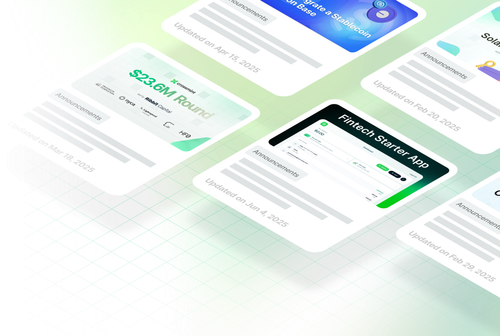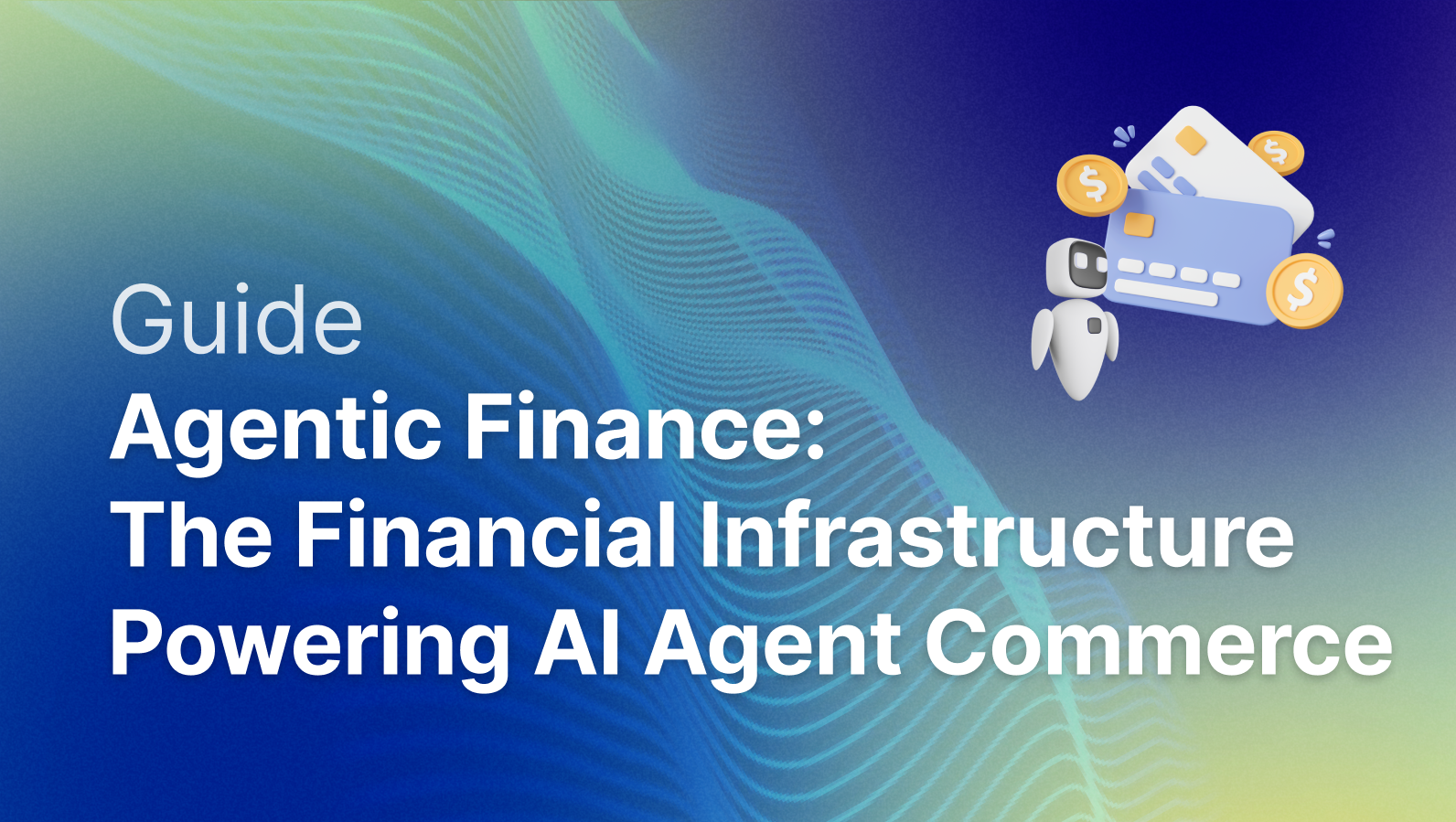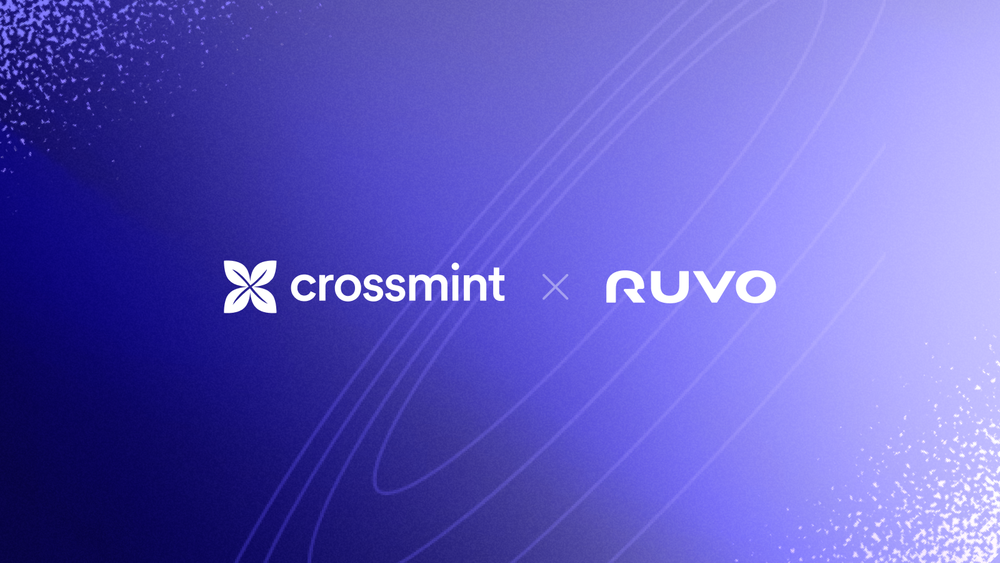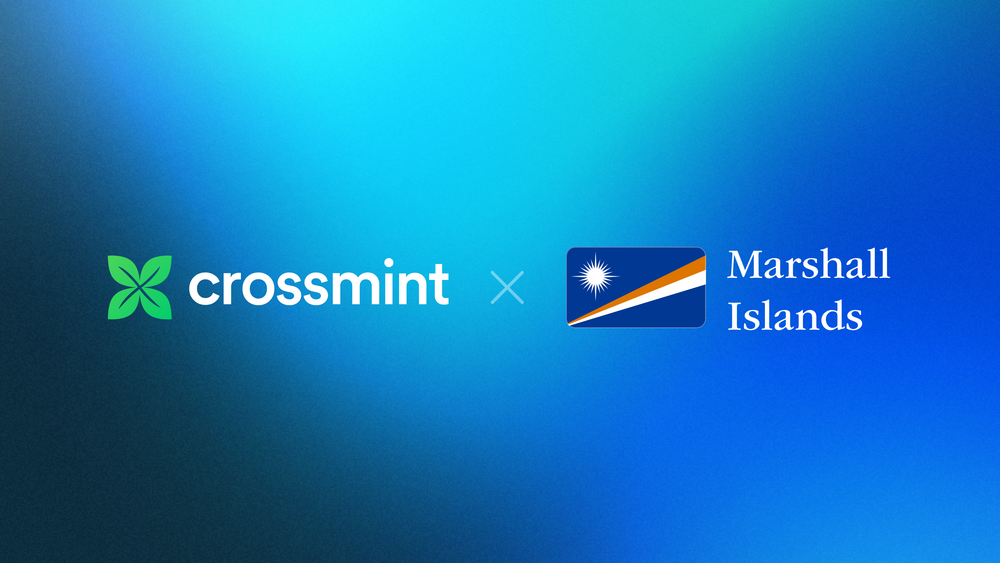As agents transition to autonomous economic actors that make purchases and complete transactions, a question emerges: how will they pay for things? Incumbent payment infrastructure companies like Stripe, Visa and Mastercard have recently announced payment solutions for AI agents that use card networks. However, early experiments have shown signs of incompatibility as card networks and the entire payments industry have been designed for humans and designed to prevent automated usage.
In this article, we’ll define agentic finance, dive into the implications that commerce has on AI agents and explore opportunities that AI agent companies can unlock with agentic commerce.
What is Agentic Finance?
Agentic finance refers to the specialized financial infrastructure and payment systems designed specifically for AI agents to transact on behalf of a user in digital and physical marketplaces. Unlike traditional payment systems built for human interaction, agentic finance creates the tools, security protocols, and transaction mechanisms that allow AI agents to handle monetary transactions without constant human supervision.
The concept goes beyond simply adapting existing payment solutions – it requires fundamentally rethinking financial infrastructure for agents that don't have traditional human identities, can't pass CAPTCHAs, and require different verification and security protocols than human users. Existing financial systems face several challenges when handling agent-initiated transactions:
- Advanced Security Measures Block Automated Transactions
CAPTCHA challenges, multi-factor authentication protocols, and sophisticated security gateways actively prevent AI agents from completing online payments, creating significant obstacles for automated purchasing systems. - Overzealous Fraud Detection Systems Flag AI Activity
Banking security algorithms immediately identify and flag unusual AI purchasing patterns as potential fraud, triggering automatic transaction blocks, account freezes, and mandatory human verification reviews. - Prohibitive Transaction Fee Structure for AI Micro-Payments
Standard payment processing fees (typically 2-3% per transaction) create unsustainable cost barriers for AI-driven micro-transactions, making many automated purchasing operations financially unviable. - Critical Payment Settlement Delays Prevent Real-Time Operations
Traditional banking transfer systems require 1-3 business days for complete settlement, creating impossible timing obstacles for AI agents designed to execute time-sensitive transactions immediately. - Stringent Identity Verification Requirements Create Impassable Barriers
Know Your Customer (KYC) and Anti-Money Laundering (AML) compliance protocols establish verification hurdles that AI agents cannot overcome when attempting to act on behalf of human users.
What does this mean for AI agent payments?
The implications that payments infrastructure has on agentic commerce are profound. With financial infrastructure purpose-built for agentic commerce, AI agents can move from simply recommending products to completing entire purchase journeys autonomously.
For this vision to materialize, several key components are essential:
- Specialized payment authentication: New verification mechanisms that identify and authorize AI agents while preventing fraud
- Programmable spending controls: Guardrails that limit what agents can purchase and how much they can spend
- Transaction transparency: Visibility into agent-initiated transactions for all stakeholders
- Secure credential management: Methods to safely store and use payment credentials without human involvement
AI agent companies looking to monetize by enabling agentic commerce have many decisions to make when it comes to choosing vendors for wallets, an onramp, and a compliance toolkit. Payment infrastructure companies like Crossmint offer full stack agentic finance solutions for AI agent companies that allow agents to pay for goods or services programmatically and aren’t subject to captchas, anti-botting or bank blocks - enabling AI agents to offer high purchase reliability to their users.
Opportunities in Agentic Finance for AI agent companies
1. Transaction-Based Revenue Streams
AI agents with financial integration can generate significant new revenue through transaction fees. Companies implementing such integrations have seen revenue triple as transaction volume scales. This creates a sustainable business model where income grows directly with user engagement, establishing a clear path to profitability that venture capital increasingly demands from AI startups in 2025.
2. Experience-Based Customer Loyalty
Research shows that 46% of consumers—including 55% of high-income households—would remain loyal to services that deliver excellent experiences even when facing price increases. AI agents that seamlessly handle financial transactions create this type of experience moat, transforming what would be complex, multi-step processes into simple conversational requests that feel magical to users.
3. Valuable Data Monetization
Every transaction your AI agent facilitates generates proprietary data that becomes increasingly valuable over time. This transaction intelligence can be aggregated (while maintaining user privacy) to provide market insights, optimize recommendation engines, and create feedback loops that continuously improve your agent's performance. This proprietary data becomes a defensible asset that competitors cannot easily replicate.
4. Cross-Ecosystem Integration Opportunities
AI agents that can autonomously conduct financial transactions become natural integration points across previously siloed systems. By serving as the transactional bridge between different platforms, products, and services, your AI agent becomes essential infrastructure in the broader digital ecosystem—positioning your company at the center of commerce flows rather than at the periphery.
5. Enterprise Workforce Multiplication
AI agents with financial capabilities effectively function as "digital workers" that can transform enterprise operations. By automating complex workflows that involve purchasing decisions, vendor management, and transaction processing, these agents enable organizations to effectively double their workforce capacity while maintaining human oversight on critical decisions. This positions your agent as mission-critical infrastructure rather than just another productivity tool.
The Agentic Finance Platform for AI Agent Companies
If you’re an AI agent company looking to launch fast with enterprise-grade payments infrastructure for agentic finance and no vendor lock-in, Crossmint's Agentic Finance platform is perfect for you. Our all-in-one solution for AI agent companies includes:
- AI Agent Wallets: Non-custodial wallets with programmable guardrails that enable agents to manage assets securely, maintain accountability through public transaction records, and operate within configured spending limits.
- World Store: An API service giving agents access to over 1 billion SKUs of real-world goods and services, with support for payments using major tokens across 40+ chains.
- GOAT SDK: An open-source library offering 250+ onchain actions across 40+ blockchains, allowing agents to send stablecoins, swap tokens, and create DeFi positions with MIT license and support for major frameworks.
- Credentials: Tools to authorize agents to act on users' behalf securely.
If you’re an AI agent company and want to learn more, reach out to us here!








